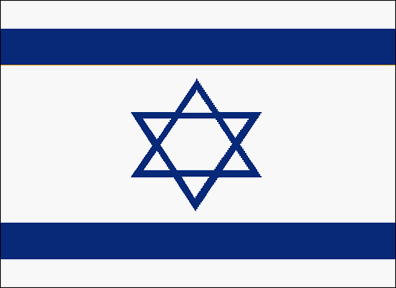Index | Search |






7A Street Hakirya, Tel Aviv 61909 Tel: 972-3-697-5774 Fax: 972-3-697-6717
 The Israel Defense Force [IDF] has no commander in chief designated as such. The Basic Law: The Army, 1976, vested command in the government. In fact, the minister of defense acts as the highest authority over the IDF and is its link to civilian political authorities. The minister of defense was a civilian (although usually a retired military officer). The cabinet is required to give prior approval to major military policies and operations. Under normal circumstances, the standing Foreign Affairs and Security Committee of the cabinet exercises this responsibility. The invasion of Lebanon in 1982 demonstrated, however, that a domineering minister of defense could, by misleading the cabinet or withholding information, act contrary to the government's wishes. Periodic reports on the status of the military were provided to the Israeli parliament, the Knesset, through its Foreign Affairs and National Security Committee and on budgetary matters through the Finance Committee.
Within the Ministry of Defense, the senior civilian officer beneath the minister is the director general, who supervises defense production, infrastructure, the budget, and other administrative and technical matters. As the supreme commander of the IDF, however, the minister of defense can intervene in all IDF matters.
In 2000 the defense budget was cut by approximately 140
million USD, and now accounts for less than 18 percent of the
GOI overall budget, the lowest percentage since the
establishment of the State of Israel. The MOD budget has become
less flexible over the years due to large fixed components, i.e.
rehabilitation and compensation payments; to sharp increases in
operational costs, and growing R&D expenses, making less funding
available for procurements. At the same time, the US Defense
Aid package to Israel is growing as part of a bi-lateral
agreement to compensate Israel for the reduction in U.S.
civilian aid. As a result of these developments, the MOD has
little choice but to increase its procurements in the U.S.
The Israel Defense Force [IDF] has no commander in chief designated as such. The Basic Law: The Army, 1976, vested command in the government. In fact, the minister of defense acts as the highest authority over the IDF and is its link to civilian political authorities. The minister of defense was a civilian (although usually a retired military officer). The cabinet is required to give prior approval to major military policies and operations. Under normal circumstances, the standing Foreign Affairs and Security Committee of the cabinet exercises this responsibility. The invasion of Lebanon in 1982 demonstrated, however, that a domineering minister of defense could, by misleading the cabinet or withholding information, act contrary to the government's wishes. Periodic reports on the status of the military were provided to the Israeli parliament, the Knesset, through its Foreign Affairs and National Security Committee and on budgetary matters through the Finance Committee.
Within the Ministry of Defense, the senior civilian officer beneath the minister is the director general, who supervises defense production, infrastructure, the budget, and other administrative and technical matters. As the supreme commander of the IDF, however, the minister of defense can intervene in all IDF matters.
In 2000 the defense budget was cut by approximately 140
million USD, and now accounts for less than 18 percent of the
GOI overall budget, the lowest percentage since the
establishment of the State of Israel. The MOD budget has become
less flexible over the years due to large fixed components, i.e.
rehabilitation and compensation payments; to sharp increases in
operational costs, and growing R&D expenses, making less funding
available for procurements. At the same time, the US Defense
Aid package to Israel is growing as part of a bi-lateral
agreement to compensate Israel for the reduction in U.S.
civilian aid. As a result of these developments, the MOD has
little choice but to increase its procurements in the U.S.
The Israel Ministry of Defense has been shifting some of its procurements from its local currency (shekel) budget to its US Foreign Military Assistance (FMF) budget. This development has been the result of recurring reductions in Israel's defense budgets and increases in US defense aid. The diversion of procurements from the local market to the U.S. has resulted in strong protests from local manufacturers, some of which have in the course of the years become dependent on MOD orders.
The major goals of the civilian defense system are to develop and prepare infrastructure and resources for implementing IDF objectives; to design and implement procurement, manufacture, development, construction, and service arrangements in order to give the IDF the means it needs to do its job; to rehabilitate disabled veterans and members of bereaved families; to develop and administer the defense export system; to administer, plan, and control the defense budget; and to handle all civilian aspects of the defense system. The Minister of Defense heads and operates the defense system. The minister is aided by assistants, advisors, and a staff directly subordinate to him. These units are responsible for coordination of operations in Judea-Samaria and the Gaza District, the emergency economic system, internal auditing of the defense system, Youth and Nahal, soldiers' ombudsman, rural settlement affairs, and infrastructure, inter alia. Civilian agencies include the Ministry of Defense (MoD), embracing all MoD agencies and divisions, overseas missions and offices, and Ministry-affiliated units and corporations. The affiliates are Israel Military Industries (IMI), and the Armament Development Authority (Rafael). The corporations - State-owned enterprises under Ministry responsibility - include Israel Aircraft Industries (IAI), Shekem, Beit Shemesh Engines (BSE) and Gappim-Israel Orthopedic Enterprises (rehabilitation and prosthetics). Several major staff agencies assist the Ministry Director-General in planning, directing, and evaluating the activities of the specific-activity divisions and helping them discharge their duties. The major staff agencies include the Bureau of the Director-General; the Deputy Director-General for Organization and Administration; the Deputy Director-General for International Security Assistance; the legal advisor to the defense system; the economic advisor to the defense system; Foreign Affairs; the Organization, Control, and Data Department; the Human Resources Division; and the Administration and Property Department.